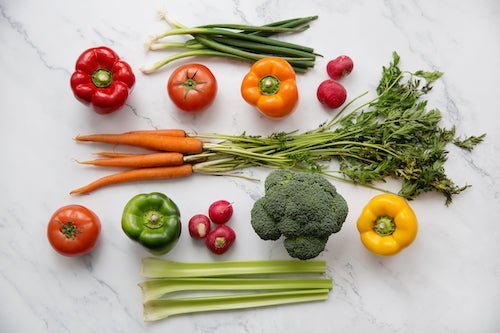4 Reasons Organic Food is Better for you

What exactly makes organic food better? We have four reasons for you—
-
More Nutritious
A study reveals that organic food contains higher levels of nutrients like antioxidants, vitamins, and other minerals. To say, around 19%-69% higher concentrations of antioxidants in polyphenols. Food that is high in antioxidants may help in reducing the risk of cancer and heart diseases. They also have anti-aging properties and eliminate free radicals in the human body (free radicals are molecules that induce cell damage). Since organic plants do not depend on chemicals to protect themselves, they produce their protective compounds which are antioxidants. But plants are not the only nutritious organic produce; livestock also gains nutritious benefits– organic meat and milk contain higher concentrations of omega-3 fatty acids than non-organic produce.
-
No pesticides
Before the importance of organic food became more pronounced, most of us had no qualms about buying conventionally produced food. Inorganic produce is mostly cultivated by inducing chemical fertilizers and pesticides or herbicides to advance their growth. This method of food cultivation not only puts a burden on the soil and water reserves but also leaves residues of chemicals. The chemicals would cause harm to our health when ingested, that is why organic food has become a better alternative. Organic food production steers clear of man-made pesticides and synthetic fertilizers that conventional farming uses. Plus, organic farmers follow the high farming standards of the International Federation of Organic Agriculture Movements (IFOAM) to be certified organic.
-
NON-GMO seeds
Genetically Modified (GM) seeds are modified to be resistant to herbicides and pesticides so that their growth does not get stunted by threats like pests and weeds. But this means that the yields will be lathered with toxins and chemicals, ultimately impacting the environment while posing health concerns such as allergies, and even cancer. The seeds are enhanced to be resistant to herbicides and pesticides but they do not ward off the pests for long. Weeds and pests could become accustomed to the chemicals, leading to farmers resorting to using stronger solutions. All of these further worsen the situation. Meanwhile, organic farming prohibits the use of GMO seeds, helps mitigate the damages, and promotes the health and wellbeing of the overall planet.
-
Enhances Soil Health
Soil health is the foundation of producing organic food— fertile soil supplies essential nutrients to plants and also helps the soil resist environmental degradation. And, organic cultivation of food improves the soil and makes it more fertile. It applies natural inputs in the form of green manure, compost, crop rotations, and cover crops. This causes less disturbance to the soil and increases nutrient recycling on the farm. All inorganic and synthetic supplements that could lower the soil’s fertility are prohibited. Good soil health also means that carbon dioxide can be stored better and help reduce the emission of greenhouse gasses in the agricultural sector.
-
Investing In Humans & The Future
Organic farming has lower operating costs, better crop quality, and higher profits margin— if around 75% of the world’s poorest that depend on agri-activities for a living switch to organic farming, the potential to improve their livelihoods increases. Organic is also a profound step toward creating a better food system. When we buy and eat organic, we are putting money into long-term farming that will benefit future generations.
Final Thoughts
Organic foods are higher in nutrients than conventionally cultivated crops. Grown in more fertile soil, it produces better crops. Alongside boosting health and wellness, organic food also considers the environment and contributes to uplifting lives around the world— a stronger consciousness of eco-societal stewardship. The benefits of organic food demonstrate that we can help the people and the environment simply by choosing to eat and live sustainably.